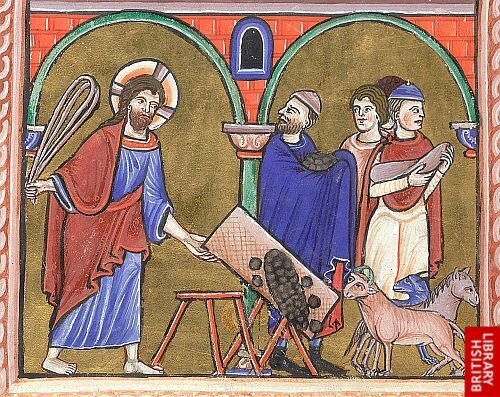The roots of Christianity are deeply intertwined with the soil of Jewish theology, and understanding the seamless continuum between the two is essential for grasping the foundation of Christian thought. Christian theology can be seen as a natural progression from Jewish theology, building upon and expanding key concepts found in the Hebrew Scriptures. In this article, we explore how Christian theology emerges organically from its Jewish predecessors, forming a coherent narrative that spans both traditions.
- Monotheistic Foundation: At the core of both Jewish and Christian theologies lies a commitment to monotheism. The Shema, the central declaration of Jewish faith found in Deuteronomy 6:4, declares, “Hear, O Israel: The LORD our God, the LORD is one.” This foundational concept seamlessly carries over into Christianity, where the belief in the oneness of God remains a fundamental tenet.
- Covenantal Theology: The concept of covenant plays a pivotal role in both Jewish and Christian theologies. The Abrahamic, Mosaic, and Davidic covenants in the Hebrew Scriptures find continuity in the New Testament, where Christians see the new covenant established through Jesus Christ. The notion of a covenantal relationship between God and humanity is a thread that binds the two theological traditions together.
- Messiah and Fulfillment: Jewish theology anticipates the coming of the Messiah, a figure who will bring about redemption and establish God’s kingdom. In Christian theology, Jesus is considered the fulfillment of Messianic prophecies, embodying the role of the anticipated Savior. This transformative understanding represents a natural progression, where Jewish hopes find fulfillment in the person of Jesus.
- Sacrificial System and Atonement: The sacrificial system outlined in the Hebrew Scriptures, particularly in Leviticus, establishes a framework for atonement and reconciliation with God. Christian theology, rooted in the sacrificial death and resurrection of Jesus, sees the ultimate atonement for sin. The progression is evident – from animal sacrifices to the once-and-for-all sacrifice of Christ.
- Ethical Foundations: Both Jewish and Christian ethics share common ground in principles such as justice, compassion, and love. The ethical teachings of the Hebrew Scriptures, exemplified in the commandments, find resonance in the teachings of Jesus and the ethical imperatives presented in the New Testament.
- Concept of Immanence and Transcendence: The tension between God’s immanence and transcendence, present in Jewish mysticism and theology, is further developed in Christian thought. The incarnation of God in Jesus Christ exemplifies a unique fusion of the divine with the human, adding depth to the understanding of God’s relationship with creation.
- Scriptural Continuity: Christian theology recognizes the Hebrew Scriptures as the Old Testament, considering them an integral part of the Christian Bible. The continuity of scripture provides a seamless narrative, with the New Testament building upon the theological foundation laid in the Old Testament.:
Christian theology, with its rich tapestry of beliefs and doctrines, emerges as a natural progression from Jewish theology. The foundational elements of monotheism, covenant, Messianic anticipation, sacrificial atonement, ethical principles, and the interplay between immanence and transcendence form a cohesive narrative that connects the two traditions. Understanding this continuum not only fosters appreciation for the shared heritage of Judaism and Christianity but also sheds light on the depth and complexity of theological thought that has evolved over millennia.
